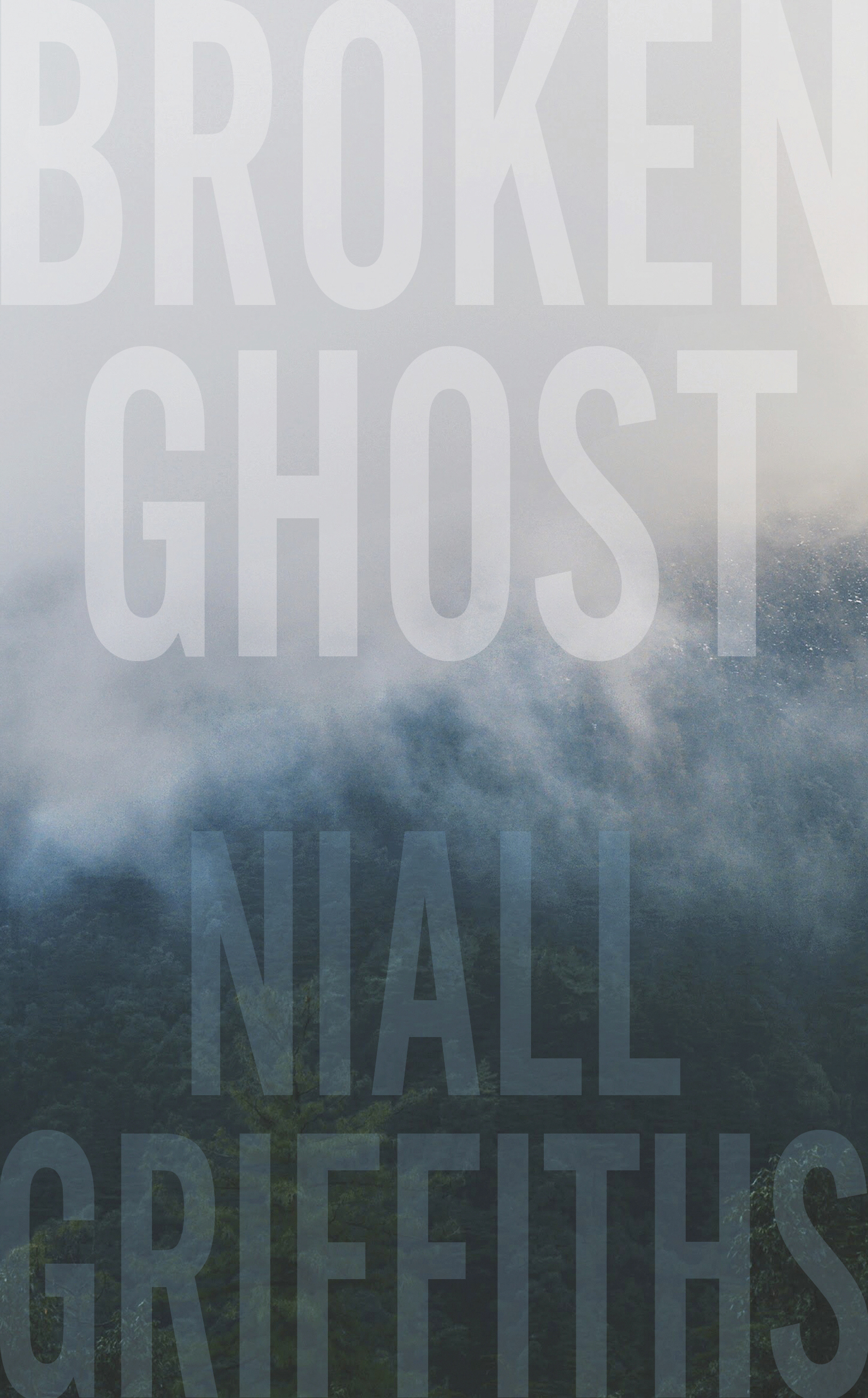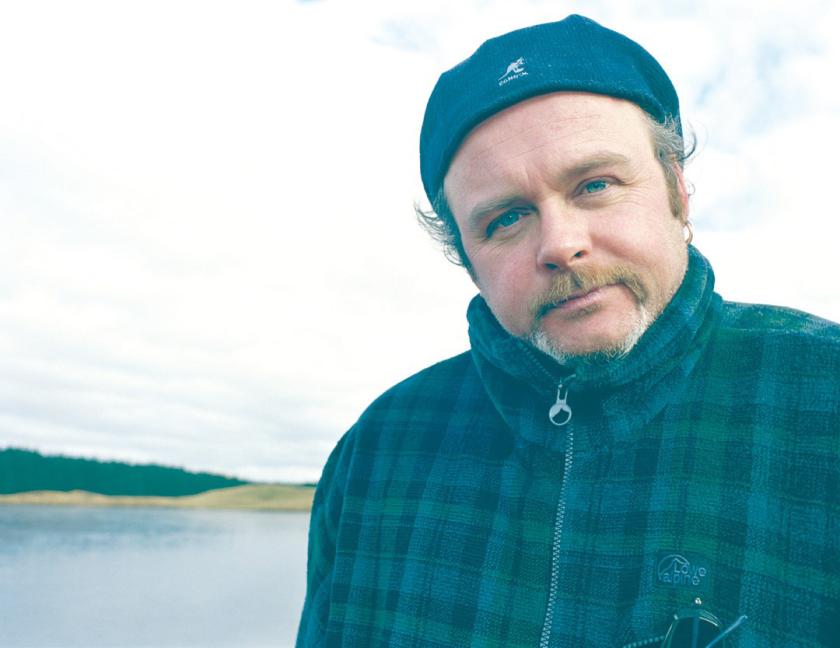The trend-hopping taste-makers who run British literary publishing have lately decided that “working-class” writing merits a small dole of their precious time and cash. To assess how long this latest patronising fad may last, check out the availability of James Kelman’s fiction: three decades of ground-breaking modernist work by a scrupulous innovator, now all but buried by Penguin, and largely consigned (a couple of titles apart) to second-hand limbo. Born in Liverpool, long settled in his homeland of Wales, Niall Griffiths has, like Kelman, crafted a sophisticated literary voice for the kind of people routinely dismissed not even as old-school proletarians but as a worthless “feral underclass”. Beginning with Grits in 2000, he has written eight novels that bring necessary news about the strange mutations in our psychic and social worlds via stories set on the margins of society – and, for Griffiths, on the geographical edgelands of this disunited kingdom too.
In a reductive nutshell, Griffiths's fiction can sound like the toughest of sells. Addiction, poverty, trauma, despair, the aftermath of abuse (bodily or social): his hard-hit people face the worst that a skewed fate can chuck at them in an unforgiving society where “power and its props became valued above all”. His work, though, avoids deprivation porn. It rewards us with soaring lyricism, the bite and drive of its vernacular voices, and the recurrent search for “something transcendent” in natural beauty, in human love, in the rapture of consciousness itself, in the ancient rhythms and cycles of the land. That strain of near-mystical fervour and fever has always meant that the lazy sobriquet once attached to Griffiths – the “Welsh Irvine Welsh” – never remotely fitted the profile of his prose.
Set in and around Aberystwyth, but far from the coastal charms enjoyed by students or tourists, Broken Ghost assembles a familiar Griffiths cast. It consists of the type of folk dismissed as no-hopers and bottom-feeders by the narrow and punitive rulers of “this scapegoating age”. The small-minded viciousness of post-austerity welfare policy, and the “bright new Brexit Britain” sarcastically hailed by its victims, have deepened the mood of alienation. In truth, however, not that much seems to have changed out in the “straight” world since Griffiths made his debuts in the New Labour years. Still, the official fetish of “austerity” has snuffed out a few remaining sparks of hope – not least in closing the idyllic shelter for recovering addicts, Rhosercan, where Adam (one of Griffiths’s central trio) has worked to rebuild his scarred mind and body. Along with Cowley, a seemingly hard-nut scrapper, boozer and pill-popper who hides a traumatic, pain-filled past, and the fragile but loving single mother Emma, Adam witnesses an apparition on a mountainside. This disputed vision unites these characters and anchors the plot of Broken Ghost. Emma writes a blog post about the lady in the sky, a sort of “floating glow”. She kick-starts an online cult, then a pilgrimage that slowly floods the hills with seekers and dreamers. For Emma, for the novel, the words “dig and bridge and wild” recur like a mantra, dark messages that point in the direction of revelation – or else apocalypse.
This millenarian frenzy builds through a torrid, rain-less “summer of scorch” towards an ecstatic peak, then a brutal denouement. Meanwhile, the protagonists – fuelled by Griffiths’s flair for the sort of scorching demotic monologue that blends poetry and profanity – excavate their past and navigate their present in this “damaged part of the world”. It has left indelible brands and cicatrices on all of them, as messy and lurid as the backstreet tattoos sported by many of the pub-crawling, substance-guzzling scavengers we meet. As remedy against this “damage”, psychic and political, the immemorial landscapes of west Wales glorify a natural order that mocks human hubris and “all the pallid empires of men”. From the “little bombs of bilberries” beside the “slatey waters” of a lake to the “orange ocarina” of a spider-crab’s carcass on the sea-shore and the ancient woodland lichen that hold “splotched harlequin libraries of data” in their genes, Griffiths’s nature retains sovereign powers of endurance and repair. All of which his people need as they lurch through existences that precariously tumble (in a cadence closer, in this case, to Samuel Beckett than local seer Dylan Thomas) “from dazzling, bloodied room to the oblong hole in the sloping hillside”.
 His refuge shuttered, Adam relapses into the shadow-life of scoring, using, even dealing drugs; the “addiction to chaos and intensity” returns. Cowley reverts to bare-knuckle fights as a way of keeping his inner demons temporarily at bay, and is even tempted by the lure of a clandestine death-match with a huge, illegal purse attached. Emma cherishes her little son Tomos but, as the benefits enforcers turn the screws on her, slips back under stress into high-risk encounters with priapic low-lifes who momentarily silence the “manic jabber of her body”. All three internalise “a sickness in the hate of the weak, of the vulnerable”. That hatred spreads down from the rotting head of the system in this “age of the snoop and the bigot”. Griffiths does not romanticise despair and self-annihilation. His figures can harm others, above all those they love, as much as themselves. They feel, like Adam, “a tug of sadness at irredeemable waste”. After a bender in Cardiff, Cowley grasps his hollowness not as some diagnosable condition but as the shared lot of “Tiny man, the pointless dust of him below the unlit forever”. Yet Griffiths’s work can make us understand how “catastrophe is its own anchor”, and why “ruination self-willed” may promise a destiny more appealing than passive, obedient defeat.
His refuge shuttered, Adam relapses into the shadow-life of scoring, using, even dealing drugs; the “addiction to chaos and intensity” returns. Cowley reverts to bare-knuckle fights as a way of keeping his inner demons temporarily at bay, and is even tempted by the lure of a clandestine death-match with a huge, illegal purse attached. Emma cherishes her little son Tomos but, as the benefits enforcers turn the screws on her, slips back under stress into high-risk encounters with priapic low-lifes who momentarily silence the “manic jabber of her body”. All three internalise “a sickness in the hate of the weak, of the vulnerable”. That hatred spreads down from the rotting head of the system in this “age of the snoop and the bigot”. Griffiths does not romanticise despair and self-annihilation. His figures can harm others, above all those they love, as much as themselves. They feel, like Adam, “a tug of sadness at irredeemable waste”. After a bender in Cardiff, Cowley grasps his hollowness not as some diagnosable condition but as the shared lot of “Tiny man, the pointless dust of him below the unlit forever”. Yet Griffiths’s work can make us understand how “catastrophe is its own anchor”, and why “ruination self-willed” may promise a destiny more appealing than passive, obedient defeat.
All the while, news of the phantom lady draws ragged pilgrims to the hillside and the novel towards its climax. Is the cloudy vision a mere “Brocken spectre”, a trick of the reflected light, or a harbinger of change that portends “a leap in the epoch about to happen”? Griffiths closes down the quest abruptly, savagely, in a cartoonish finale that feels closer to the style of an Alan Moore comic book than the richly layered prose textures that have preceded it. That certainly suits his critique of abusive power and its urge to shut down complexity and possibility. Yet it leaves the reader of Broken Ghost with an unfed hunger, a longing, a howling sense of loss. Just like his craving characters, we start and end in dire need.
- Broken Ghost by Niall Griffiths (Jonathan Cape, £14.99)















Add comment